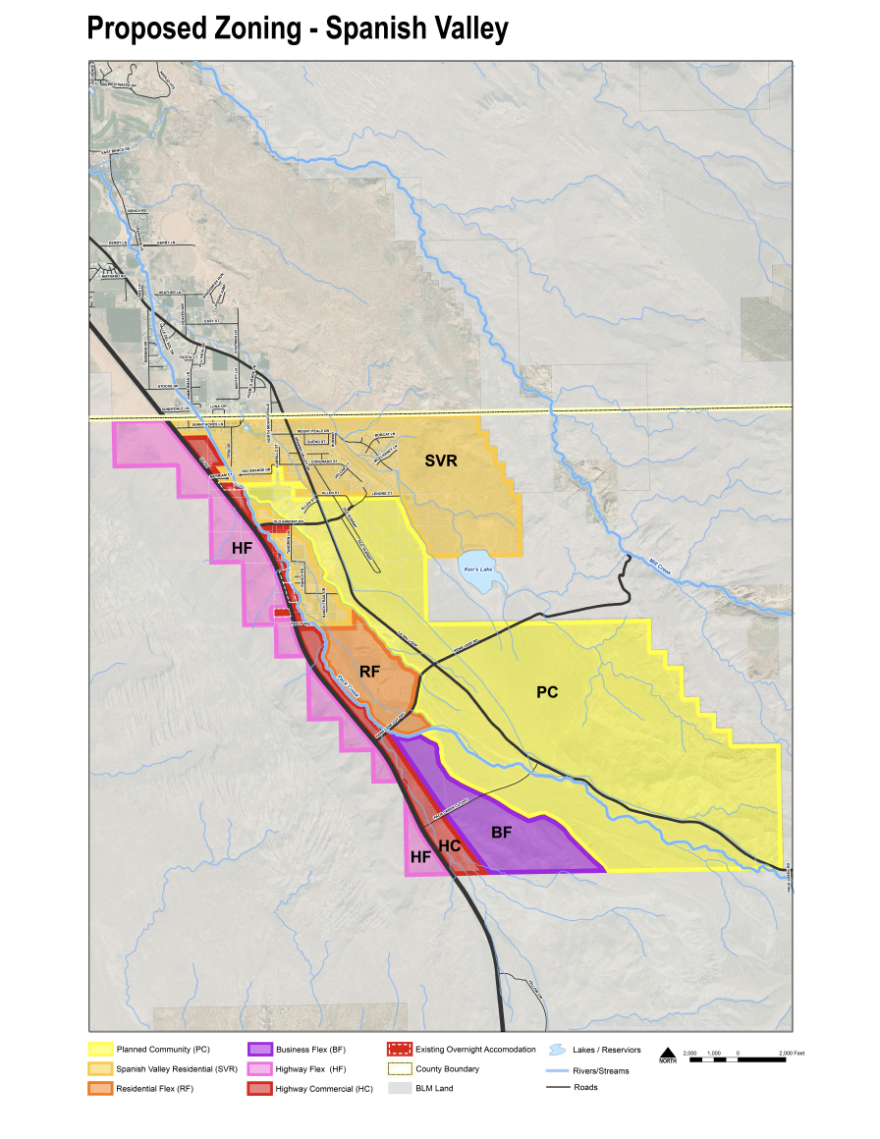MONTICELLO — From the potential construction of a 13-acre truck stop to the conversion of housing into overnight rentals to the loss of their dark night skies, people who moved to Spanish Valley for peace and quiet say their way of life is under threat.
The culprit: Sewer and water service is coming this fall to the rural area along Highway 191, just south of Moab, which could unleash a wave of development. Some projects that rely on the new services, including a 13-acre truck stop, are already underway.
Draft zoning ordinances published Friday seek to direct — and in some cases halt — this growth. The ordinances are part of an emergency planning process residents demanded in the spring, when they learned about plans to build a Love’s Travel Stop in their neighborhood.
The ordinances, drafted by a consultant, prohibit truck stops from being built in the heavily populated northern part of the valley. They also limit overnight rentals to specific areas and outline strict rules for lighting to protect the valley’s dark night skies.

But the new ordinances may not apply to the property Love’s is in the process of purchasing from the Utah School and Institutional Trust Lands Administration. While the sale is not yet final, Love’s submitted a site plan for the truck stop to the county before a moratorium on commercial development went into place, said Walter Bird, San Juan County planning and zoning director.
Because of this, Bird said lawyers for the county’s insurer reviewed the document and determined that Love’s could be vested under the old zoning laws— and, if the county forces them to comply with new ordinances prohibiting truck stops, it could be sued.
“Residents are saying that if we approve this truck stop, we are liable for the effect on their neighborhood. But they need to understand that we can be just as liable on the other side,” he said. “We’re pinched in the middle right now.”
Pat Baril, who lives a few hundred feet away from where Love’s Travel Stops plans to build, said the draft ordinances take most of his concerns into account.
“A lot of the things that did come through I thought were pretty beneficial, as far as for the health and safety for the people of Spanish Valley,” he said.
Baril is part of a group called the Northern San Juan County Coalition, which asked the County Commission for the moratorium on development after they found out about Love’s plans. The moratorium went into effect in May, and expires in November.
In the meantime, the county has been working to put new zoning ordinances in place for the area along the highway. Currently, commercial development of any kind is allowed up to 1000 feet on either side of the highway.
That could change if the draft ordinances are adopted by the commission after they are reviewed by the county’s planning and zoning board. The board plans to meet on October third, and can alter the ordinances or recommend them to the commission for approval.


